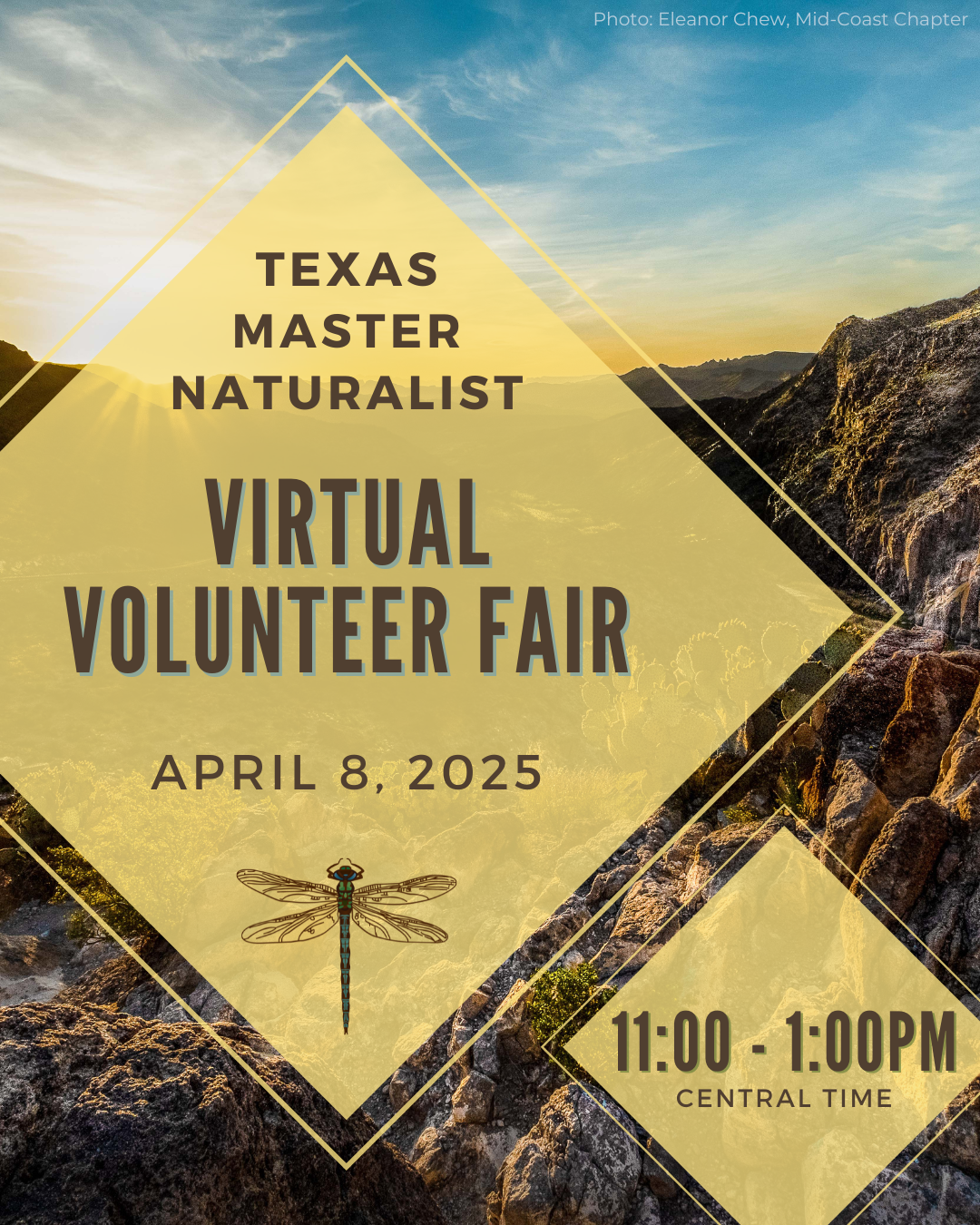
Join us each month for our #TMNTuesday Webinars!
On the second Tuesday of each month at 12:00pm Central Time, the Texas Master Naturalist Program state office offers an hour-long virtual advanced training event—with fantastic new and returning guest speakers. Scroll down the page and select a month to view upcoming and past webinars.
2026 #TMNTuesdays

TMNTuesdays are a way to learn about top conservation issues of the state, earn advanced training hours, and interact with wildlife professionals from across the state!
As webinars are confirmed, details on the speaker, the description of the webinar, and more will be presented on this page. Use the registration link below to register for our 2026 TMNTuesday dates!
Note: The link to join is included in the initial registration approval email. We recommend using the “add to calendar” feature to save it to your calendar. An additional reminder email will be sent to all attendees the day before the start of each webinar.

March 2026

Title: Generations in the Wild: Understanding What Drives Environmental Values Across Age Groups
Speaker: Amy Hays, For Science Sake Founder and Principal Consultant
Date: March 10, 2026, at 12PM CT
Description: Not all generations see the environment—or their role in it—the same way. This session explores how generational intelligence can help Master Naturalists better understand the diverse values, motivations, and communication styles of those they engage. We’ll look at how different age groups—from Boomers to Gen Z—perceive environmental issues, what compels them to act, and how life experiences shape their connection to nature. Whether you’re leading volunteers, giving a public talk, or working across age groups, this session offers insights to help you build trust, tailor your message, and foster deeper conversations. Understanding generational differences isn’t about stereotypes—it’s about empathy and strategy. Come explore how we can better connect through the lens of time and experience.
Amy Hays has spent her career honing science communication skills to help professionals and organizations share complex environmental topics clearly, credibly, and confidently. With over 25 years of experience in agriculture and natural resource management, Amy specializes in practical, hands-on approaches to ecological literacy that support conservation outcomes on working lands. Amy’s coaching and teaching emphasize real-world learning, science-informed decision-making, and bridging the gap between research and practice in conservation.
Resources:
February 2026

Title: The Bobcat: 2026 Recertification Pin
Speaker: Richard Heilbrun, Texas Parks and Wildlife Department Wildlife Division Deputy Director
Date: February 10, 2026, at 12PM CT
Description: Richard Heilbrun is the Wildlife Division Deputy Director at Texas Parks and Wildlife Department. Join Richard as he tells us all about the animal featured on the Texas Master Naturalist 2026 recertification pin: The Bobcat!
January 2026

Title: State of the Program
Speakers: Michelle Haggerty, Mary Pearl Meuth, and Hannah Ferguson
Date: January 13, 2026, at 12pm CT
Description: Join the Texas Master Naturalist Program staff, Michelle Haggerty, Mary Pearl Meuth, and Hannah Ferguson, for a State of the Program!
2025 #TMNTuesdays
You can find all of the recordings for the 2025 #TMNTuesdays by clicking directly on the month you’re interested in!

2024 #TMNTuesdays
You can find all of the recordings for the 2024 #TMNTuesdays by clicking directly on the month you’re interested in!
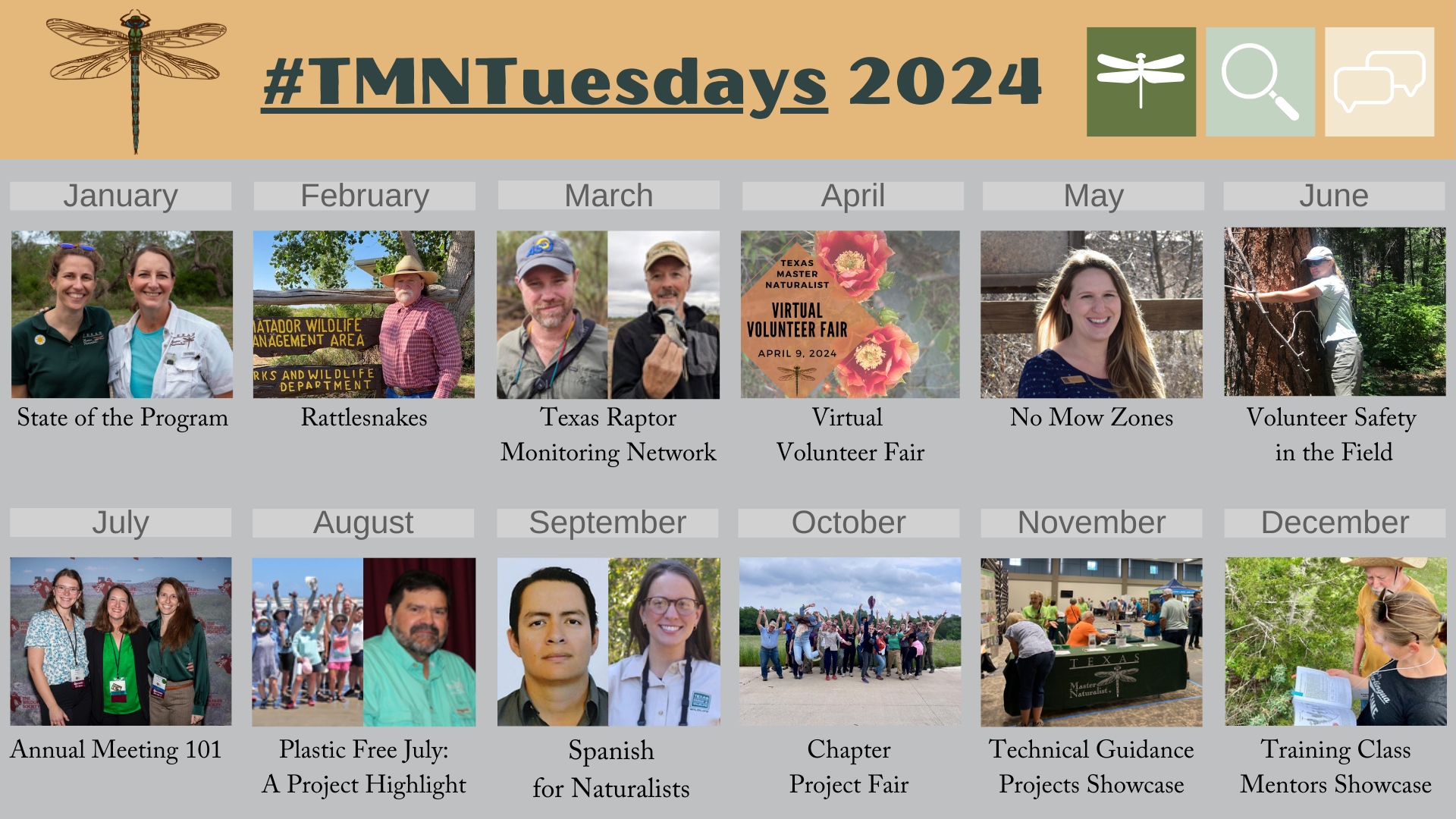

2023 #TMNTuesdays
You can find all of the recordings for the 2023 #TMNTuesdays by clicking directly on the month you’re interested in!
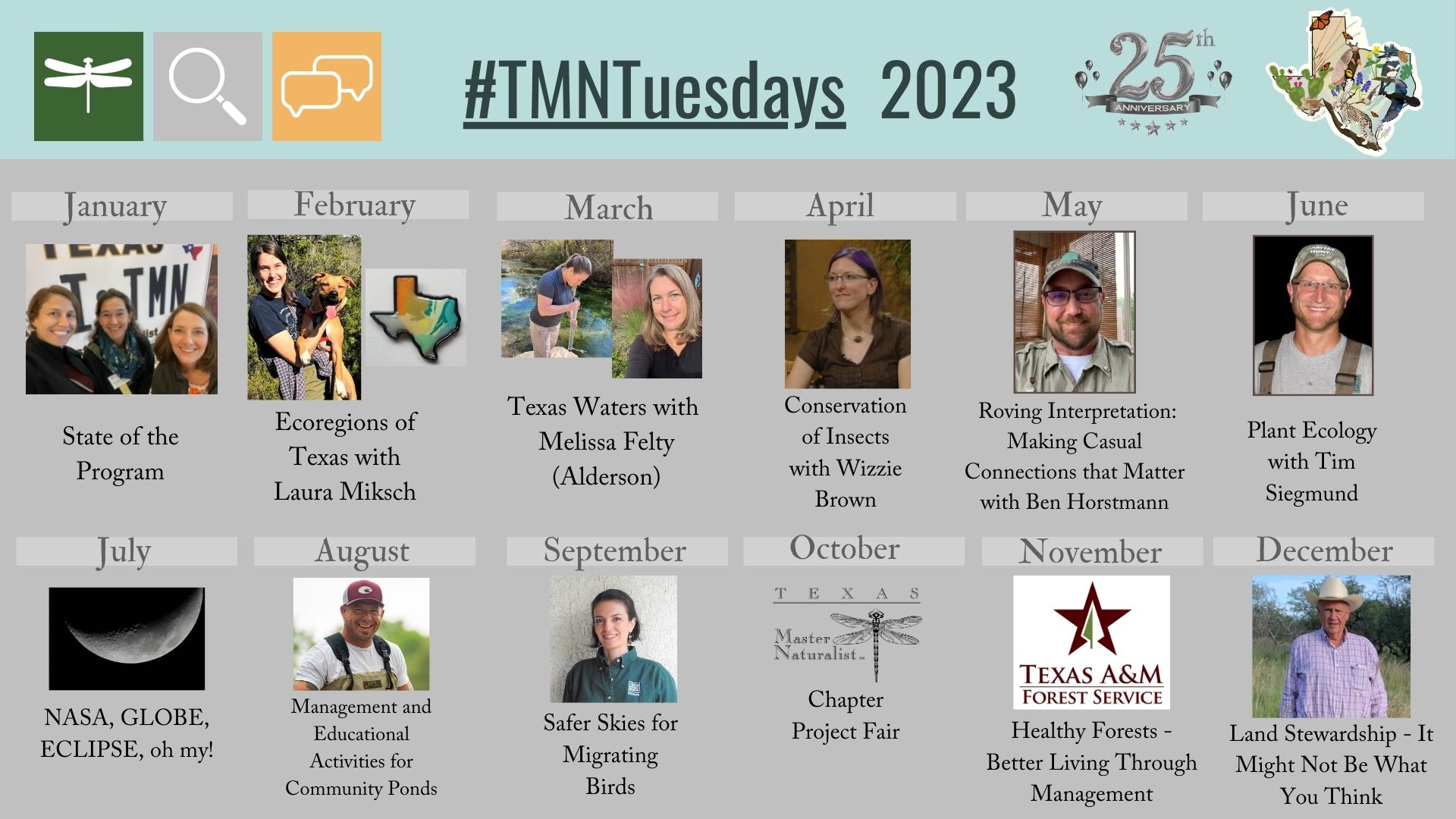
2022 #TMNTuesdays
Scroll through the 2022 #TMNTuesdays hosted by the TMN State Office and recorded for your enjoyment!
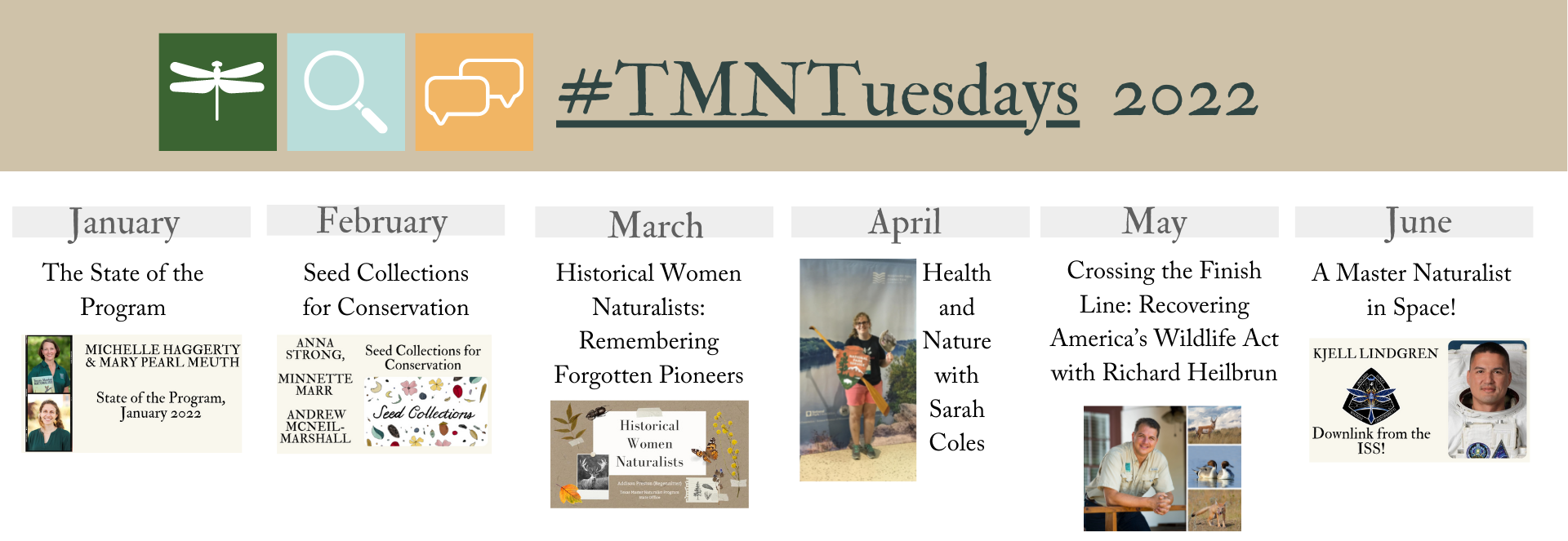

2021 #TMNTuesdays
Our first year of #TMNTuesdays webinars was a huge success! Click on a month below to see the past webinar.
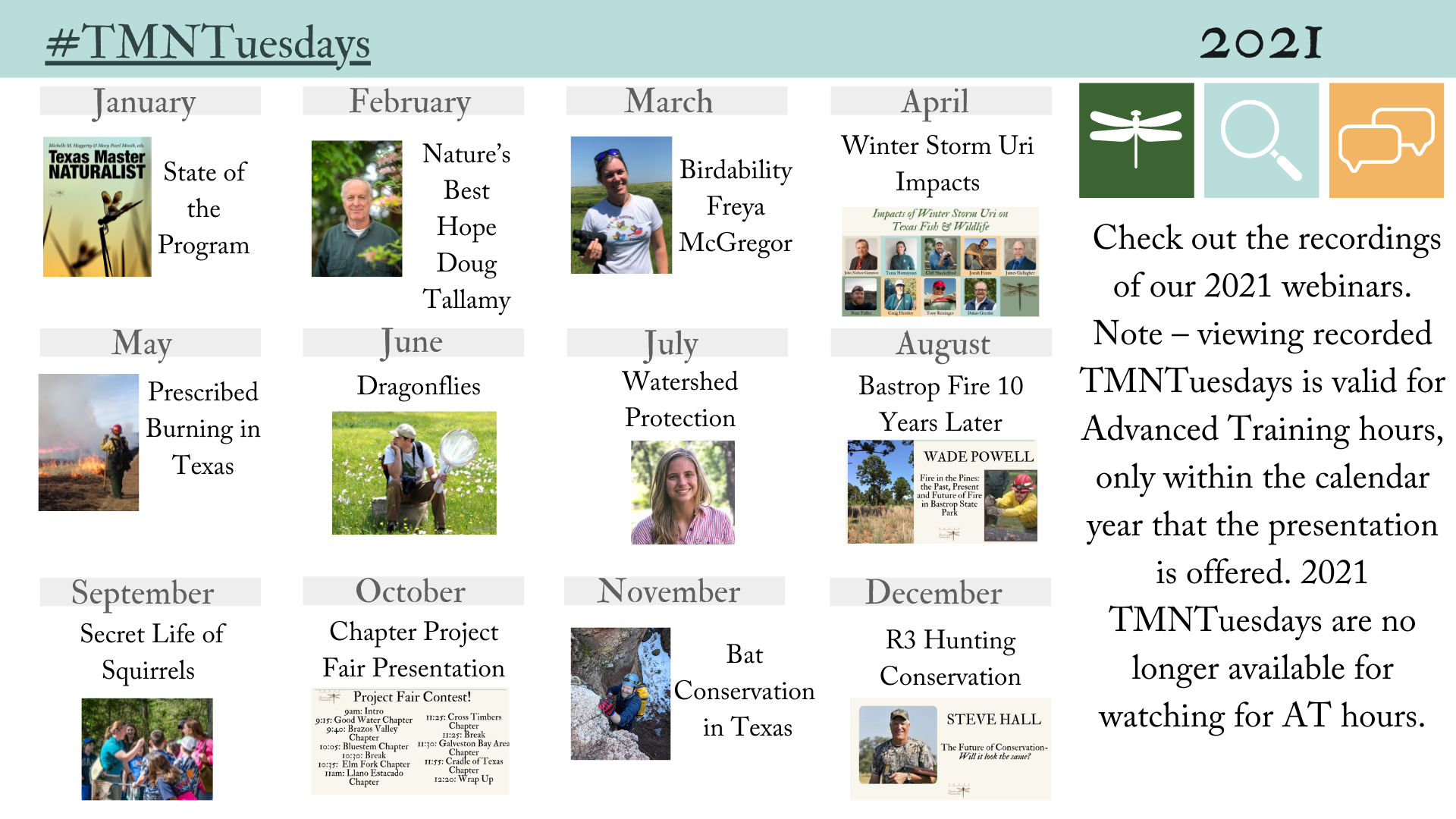
Visit our 2021 Be The Change mini-series as part of our webinar events!
Frequently Asked Questions











